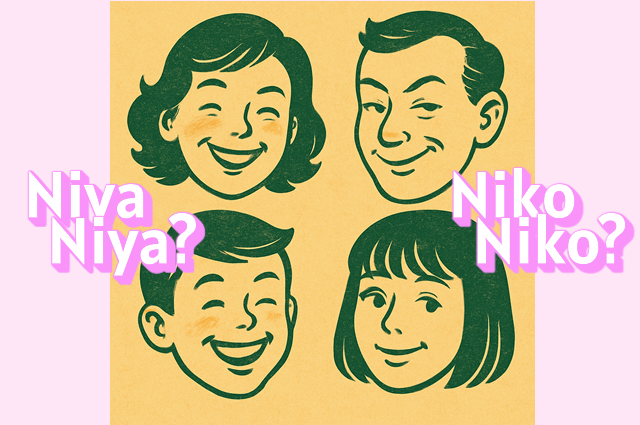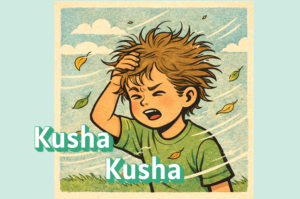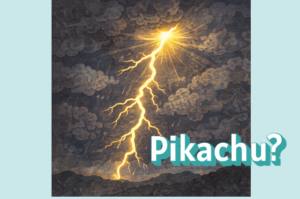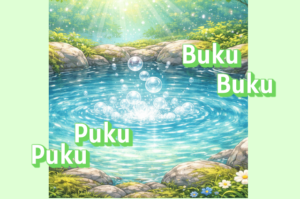Ever seen someone smiling kindly, like sunlight warming your day?
Or someone smirking slyly in the corner, holding back a secret?
In Japanese, both are smiles — but the feeling they carry is completely different:
Niko Niko (にこにこ)
Niya Niya (にやにや)
What is “Niko Niko” (にこにこ)?
A soft, gentle smile that radiates kindness and happiness.
- Used for: children, friendly teachers, warm greetings, peaceful joy.
- Nuance: positive, heartwarming, continuous.
Example:
She welcomed the guests,
smiling gently —
niko niko…
Pronunciation
nee-koh nee-koh (gentle, continuous)
What is “Niya Niya” (にやにや)?
A smirk or sly grin, often with a sense of secret amusement, awkwardness, or mischief.
- Used for: someone remembering a prank, feeling embarrassed, or enjoying a private joke.
- Nuance: playful, sneaky, sometimes a bit uncomfortable or eerie.
Example:
He remembered his prank,
sat in the corner —
niya niya…
Pronunciation
nee-yah nee-yah (drawn out, with a smirking tone)
Cultural Note
In English, both could be described as “smiling,” but the nuance is distinct:
- Niko Niko = gentle, warm, and friendly
- Niya Niya = sly, awkward, or mischievous
That’s why in anime, manga, or novels:
- A kind teacher or grandparent is often “niko niko.”
- A villain hiding in the shadows, or a character smirking awkwardly, is “niya niya.”
Examples in Daily Life

Example 1: Friendly smile (Niko Niko)
She gave the child a cookie,
smiling gently —
niko niko.
Example 2: Awkward smirk (Niya Niya)
Caught daydreaming,
she smiled nervously —
niya niya.
Try Using Them!
- When you want to describe a warm, heartful smile → say niko niko.
- When you want to describe a sly smirk or awkward grin → say niya niya.













Comments